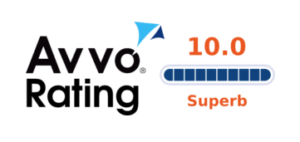



Professional Help With A Guardian Disability Appeal

Disability insurance is widely available in the United States thanks to Guardian Life Insurance Company of America, also known as Guardian. With origins in 1860, Guardian has established a reputation for providing complete insurance solutions to both individuals and businesses. Guardian has, however, been known to reject disability claims, like any insurance provider, leaving policyholders to navigate the difficult Guardian Disability Appeal procedure.
Guardian’s Approach to Disability Appeals
Guardian, like many insurance providers, employs various strategies when handling disability appeals. These tactics can include in-house medical reviews, biased medical peer reviews, surveillance, and misclassification of the policyholder’s occupation. Understanding these tactics can provide valuable insight into the appeal denial process and equip you with the knowledge needed to effectively challenge a denial.
The Guardian Disability Appeal Process
If your disability appeal has been denied by Guardian, it’s crucial to understand the appeal process. Guardian is known for making multiple requests for medical, financial, and vocational information before finding a way to deny benefits. This delay and denial strategy can drain the policyholder’s bank accounts as they try to stay financially afloat.
Moreover, Guardian rarely discloses the real reasons for denials, often using doctors who provide them with the necessary justification for a claim’s denial or termination. This is where an experienced attorney can make a significant difference.
The Role of an Experienced Attorney
An experienced attorney can assist you with your Guardian claim by reviewing your policy and medical records, creating a pre-claim strategy to get your benefits on the initial application, appealing a wrongful denial or termination, protecting you from aggressive claims handling by Guardian, and aggressively litigating your case, if necessary.
Don’t Face Guardian Alone
Appealing a denied Guardian claim is akin to a trial. Taking on a tough insurance company like Guardian requires an experienced specialist. A federal judge will give Guardian the benefit of the doubt because your Guardian policy requires you to prove they are wrong and not the other way around.
Case Summary: Guardian Disability Appeal Won for Legal Secretary
The case involves a legal secretary in Georgia who worked for a law firm for over five years. She underwent an outpatient ablation procedure for heart issues, which went catastrophically wrong, resulting in a stroke. The stroke left her hospitalized for 30 days, including two weeks in the ICU, and required extensive rehabilitation to relearn basic functions like walking and feeding herself. She now relies on a walker, experiences vision issues, left-sided weakness, hand issues, pain, and fatigue, and requires ongoing family care. Her employer-provided group disability policy with Guardian, one of the largest group disability insurers, initially approved her claim, paying benefits for three years under the policy’s own-occupation provision, with a modest monthly benefit of less than $500 due to offsets from her Social Security disability approval.
Read Full Case Summary Here...
The case involves a legal secretary in Georgia who worked for a law firm for over five years. She underwent an outpatient ablation procedure for heart issues, which went catastrophically wrong, resulting in a stroke. The stroke left her hospitalized for 30 days, including two weeks in the ICU, and required extensive rehabilitation to relearn basic functions like walking and feeding herself. She now relies on a walker, experiences vision issues, left-sided weakness, hand issues, pain, and fatigue, and requires ongoing family care. Her employer-provided group disability policy with Guardian, one of the largest group disability insurers, initially approved her claim, paying benefits for three years under the policy’s own-occupation provision, with a modest monthly benefit of less than $500 due to offsets from her Social Security disability approval.
At the three-year mark, when the policy’s definition of disability shifted to “any gainful occupation,” Guardian denied her claim, asserting she was “stable” based on medical records and could return to work. The denial relied on two external consultant reviews and an in-house vocational analysis, which suggested she could perform sedentary jobs like secretary or receptionist. These reviews highlighted her “stable” condition but ignored critical impairments, such as her inability to type due to hand issues, reliance on a walker, and other stroke-related limitations. The attorneys criticized the consultants as biased, selectively focusing on positive aspects of the medical records while disregarding evidence of ongoing disability, describing the denial as egregious.
Attorney Alexander Palamara took on the case, motivated by the injustice of the denial despite the low benefit amount, and built a robust appeal to reinstate benefits. Key steps included:
- Obtaining updated medical records and Guardian’s claim file to analyze the basis of the denial.
- Arranging a Functional Capacity Evaluation (FCE) by an independent physical therapist, which concluded the client was unemployable and incapable of sedentary work due to her inability to type, sit for extended periods, lift, or function without a walker.
- Securing an updated attending physician statement from the client’s doctor, who endorsed the FCE results and reiterated that the client could not perform any occupation due to fatigue, left-sided weakness, vision issues, and other impairments.
- Hiring a vocational expert to review Guardian’s vocational analysis, the consultant reports, FCE results, medical records, and physician statements. The expert refuted Guardian’s claim, stating it was “ridiculous” to suggest the client could work as a secretary or receptionist given her typing limitations and other physical constraints.
- Crafting an appeal that systematically highlighted errors in Guardian’s consultant reviews and vocational analysis, pointing to the overwhelming evidence of disability, including the FCE, physician support, and Social Security’s finding of disability.
The appeal was so compelling, supported by extensive new evidence, that Palamara described it as “writing itself.” Guardian reversed the denial, reinstating the client’s benefits, acknowledging the lack of a reasonable basis for their initial decision. The attorneys noted that Guardian’s increasing denial rates make them one of the most challenging insurers to deal with, yet this case demonstrates that well-supported appeals can succeed. Palamara continues to manage the claim, advising the client on medical record updates, claimant statements, and attending physician statements to prevent future denials, as Guardian may reevaluate periodically despite the low benefit amount. The case underscores that no claimant is immune to scrutiny, regardless of benefit size, and highlights the importance of objective evidence like FCEs and vocational analyses in overcoming biased consultant reviews in ERISA-governed claims.
Understanding the Types of Disability Policies Offered By Guardian
Guardian offers different types of disability policies, each with its own set of rights and conditions. These include ERISA Disability Insurance for Groups, Non-ERISA Disability Insurance for Groups, and Disability Insurance for Individuals (ID). Understanding these policies and their implications is crucial when filing an appeal.
ERISA Disability Insurance for Groups
Guardian offers disability policies through employers that are governed by ERISA. These policies generally have strict definitions of disability and occupation, limitations on how long payment will be made for mental conditions, or subjective conditions like headaches, pain, fibromyalgia, or chronic fatigue. They also include “other income” provisions that allow for a dollar-for-dollar reduction for the receipt of Social Security disability benefits, workers’ compensation benefits, and personal injury settlements.
Non-ERISA Disability Insurance for Groups
Guardian also offers Non-ERISA Disability Insurance for Groups. These policies are governed by state law, which can be more favorable to policyholders than federal law. In state law claims, you are entitled to a jury trial, and the court is generally more friendly to policyholders.
Disability Insurance for Individuals (ID)
Guardian offers private individual disability policies known as ID policies. These are the best and most comprehensive policies, but they also come with a high monthly premium. Guardian fights an individual disability claim as hard if not harder than an ERISA claim, and costly mistakes can be made during the initial application and appeal stages of a case.
The Importance of Legal Representation
The Guardian Disability Appeal process can be complex and overwhelming. Having an experienced attorney on your side can make a significant difference. They can guide you through the process, help you understand your rights, and provide the necessary support to challenge Guardian’s decision.
You Can Feel Confident Handling Your Guardian Disability Appeal
It can be difficult and stressful to receive a denial from Guardian. You can, however, appeal their decision and obtain the benefits you are entitled to with the right legal representation and a thorough understanding of the Guardian Disability Appeal procedure. Keep in mind that denial is only the beginning of your fight for justice; it is not the end of the road.
While navigating the Guardian Disability Appeal process’ complexities can seem like a difficult task, it’s important to keep in mind that you’re not fighting it alone. You can successfully navigate this difficult terrain with a Guardian Life Disability Insurance Lawyer.






